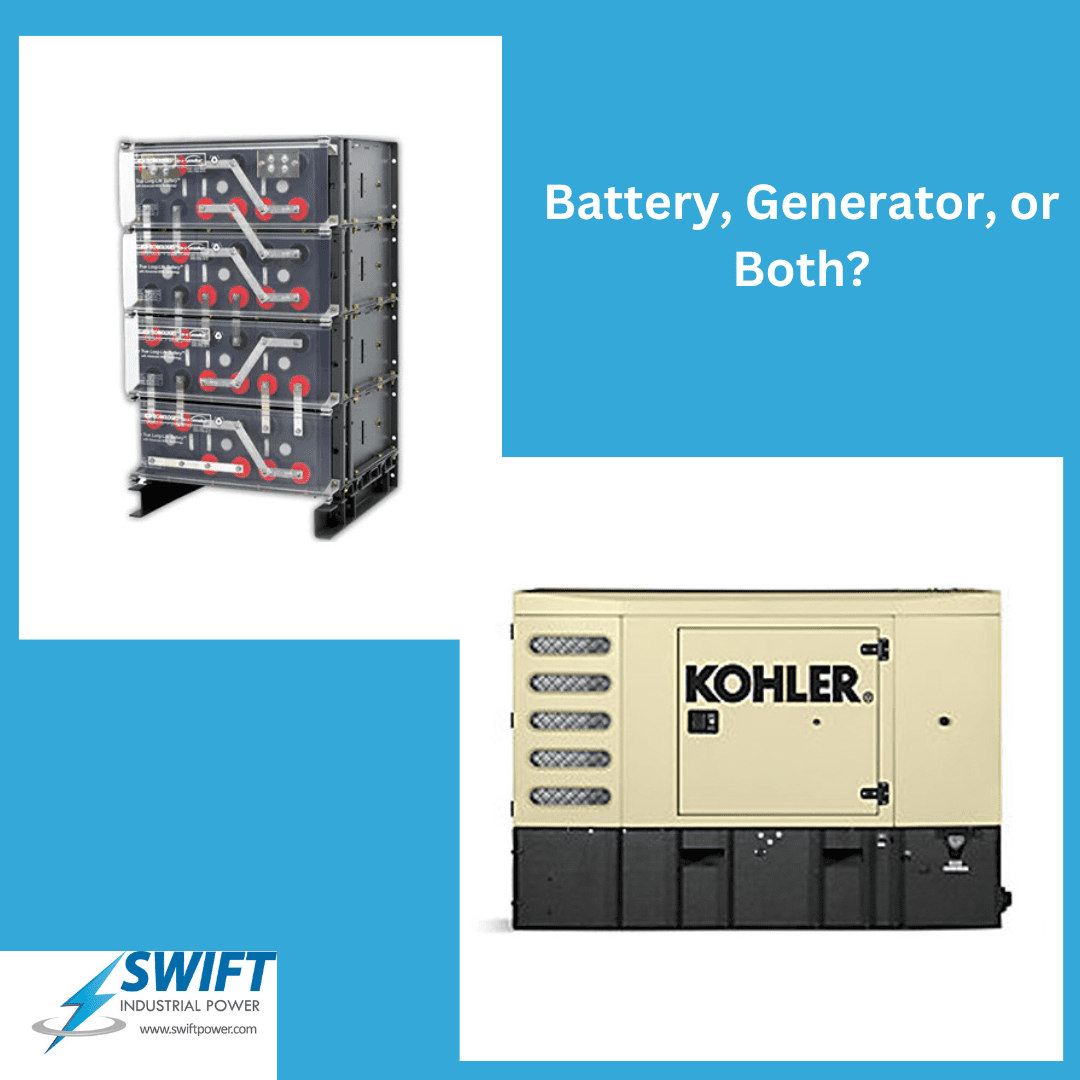Battery Backup vs. Generators: Which Backup System is Right for Your Facility?
In today’s fast-paced business world, downtime is not an option. Power interruptions can halt operations and lead to significant financial losses. That’s why reliable backup power systems, such as battery backup and generators, are critical for ensuring business continuity. But which system is right for your facility? Here, we’ll explore the benefits and considerations of each option to help you make an informed decision.
Understanding Battery Backup Systems
Battery backup systems, often referred to as Uninterruptible Power Supplies (UPS), provide instant power to critical equipment when the primary power source fails. These systems are commonly used in environments where even a few seconds of power loss could be catastrophic, such as data centers, hospitals, and telecom facilities.
Advantages of Battery Backup Systems:
- Instantaneous Power Supply: Battery backup systems deliver power immediately, often in less than a millisecond, which is essential for systems that need uninterrupted power, like IT servers or phone systems.
- Clean Power: Battery backup systems deliver a consistent, stable current, protecting sensitive electronics from power surges, spikes, or voltage drops.
- Quiet and Emission-Free: Battery backup systems operate silently and don’t produce emissions, making them suitable for indoor environments and eco-conscious facilities.
Limitations of Battery Backup Systems:
- Limited Runtime: Most battery backup systems are designed to provide power for minutes to hours, enough to bridge the gap until power is restored or a generator starts. They’re not ideal for long outages.
- Storage and Temperature Requirements: Batteries need a controlled environment to ensure optimal performance, which may increase infrastructure costs.
Understanding Generators
Generators are a common backup power solution, especially for facilities requiring extended power support during outages. Unlike battery backup systems, generators rely on an external fuel source, such as diesel, natural gas, or propane, and can run for days as long as fuel is available.
Advantages of Generators:
- Extended Power Supply: Generators can provide power for hours or even days, as long as they have a steady fuel supply, making them ideal for facilities in regions prone to long outages.
- High Output: Generators are capable of powering large facilities, including industrial machinery and heavy equipment, which might exceed the capacity of most battery systems.
- Versatility in Fuel Options: Generators come in various fuel types—diesel, propane, natural gas—which allows facilities to choose based on availability, cost, and environmental concerns.
Limitations of Generators:
- Delayed Activation: Unlike battery backups, generators take a few seconds to kick in, which may disrupt sensitive operations.
- Noise and Emissions: Generators, especially those powered by diesel, can be noisy and produce emissions, limiting their suitability in certain environments.
Key Considerations When Choosing Between Battery Backup and Generators
1. Duration of Backup Power Needed
- For short outages or to bridge brief gaps in power (seconds to minutes), battery backup systems are highly effective.
- For long outages, where power may be needed for hours or days, generators are typically more reliable.
2. Power Load Requirements
- Battery backup systems are suitable for low- to medium-power needs, especially for sensitive equipment like servers, computers, and emergency lighting.
- Generators are better suited for high-power needs and industrial applications, as they can handle larger loads without compromising performance.
3. Environmental Impact
- Battery backup systems produce no emissions and are quieter, making them preferable for indoor use.
- Generators, particularly diesel-powered ones, produce emissions, so they may require additional exhaust and noise control measures.
Combining Battery Backup Systems and Generators for Optimal Resilience
For facilities where power continuity is mission-critical, a hybrid approach using both battery backup systems and generators offers the best of both worlds. A UPS battery system can provide instantaneous power while a generator starts up, ensuring no interruption. This solution is common in hospitals, data centers, and large commercial facilities where a continuous power supply is essential.
Conclusion: Which System is Right for Your Facility?
Ultimately, the right backup power solution depends on your facility’s specific needs, operational requirements, and budget. If your priority is a seamless, emission-free solution for short-term outages and sensitive equipment, battery backup systems are an ideal choice. If you’re preparing for longer outages and need to power larger equipment, generators are a reliable option.
Assess your facility’s power needs, consider potential risks, and consult with a power solutions expert to determine the best system for your business. With the right backup system in place, you can rest assured that your facility is prepared for whatever challenges may come.
Check out the Reserve Power side of our website to see our battery backup systems and generator solutions to help support your operational needs!

